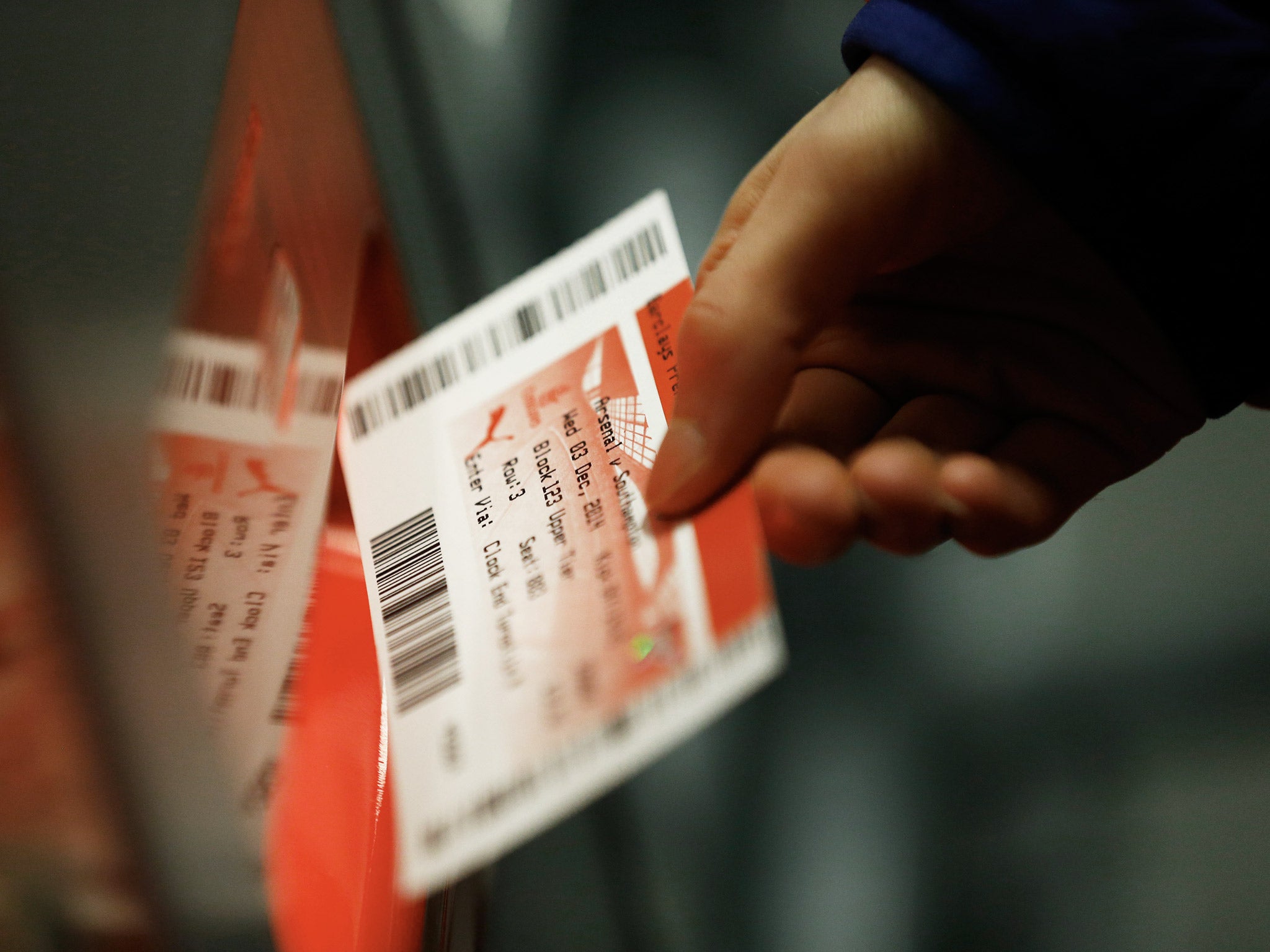Fans prepare to protest as top-flight clubs make record profit
Calls grow for lower ticket prices after overall surplus of £190m last season

Your support helps us to tell the story
From reproductive rights to climate change to Big Tech, The Independent is on the ground when the story is developing. Whether it's investigating the financials of Elon Musk's pro-Trump PAC or producing our latest documentary, 'The A Word', which shines a light on the American women fighting for reproductive rights, we know how important it is to parse out the facts from the messaging.
At such a critical moment in US history, we need reporters on the ground. Your donation allows us to keep sending journalists to speak to both sides of the story.
The Independent is trusted by Americans across the entire political spectrum. And unlike many other quality news outlets, we choose not to lock Americans out of our reporting and analysis with paywalls. We believe quality journalism should be available to everyone, paid for by those who can afford it.
Your support makes all the difference.Premier League clubs have recorded an overall profit for the first time in 15 years, just as fans are meeting to protest against the rising cost of following the game and growing inequality between the top flight and the rest.
According to accountancy firm Deloitte, which publishes regular reports on football finances, in the 2013-14 season the 20 Premier League clubs combined made an overall profit of £190m, the first time they have done so since 1999, and four times higher than the previous record of £49m, from the 1997-98 season.
These are numbers that will only further enrage fans, with the Football Supporters’ Federation gathering this morning in central London to hand in a petition to a meeting of Premier League chief executives. It will ask that the league’s vast wealth be more fairly distributed, both in terms of cutting ticket prices and giving more money to clubs further down the game’s pyramid.
Deloitte’s figures show that last season Premier League players’ wages rose by 6 per cent in total, from £1.8bn to £1.9bn, while overall revenue at the 20 clubs increased by 29 per cent.
The return of the Premier League as a whole to the black reflects the impact of Uefa’s financial fair play regulations, which require clubs to operate within budgetary limits. These new rules, mirrored by controls in the Football League, were introduced in 2011 and have curbed some of the clubs’ more extravagant spending. Over the previous decade, most Premier League outfits, despite their vast incomes, operated at a loss.

Deloitte’s findings, and the £5.1bn domestic TV deal which starts next year, suggest that, provided they control players’ wages, the top-flight clubs may be about to enter a period of relative stability.
From 2016, the bottom club in the Premier League is expected to received more than £100m in TV money, with the champions getting £180m, nearly double what they earn under the terms of the current deal.
Adam Bull, senior consultant in the sports business group at Deloitte, said: “The introduction of cost control regulations at both a European and domestic level has caused many clubs to watch their spending more closely than ever before and created a useful tool for clubs to reduce the inflationary pressures during negotiations with players and agents.
“Also, the current broadcast deal has given Premier League clubs such a large revenue advantage over the vast majority of European clubs that they can still attract the top playing talent without over stretching themselves financially.”
If that is the case, calls from supporters to cut ticket prices will only get louder. Kevin Miles, the chief executive of the FSF, said: “This colossal TV deal gives clubs a tremendous opportunity to give something back – they can easily afford to drop ticket prices and make football affordable for all.”
The FSF has previously concentrated on securing lower ticket prices for away fans and had some success when the Premier League introduced the £12m Away Fans Initiative in 2013.
Now the federation is calling for cuts across the board as well as greater grassroots funding under the banner of “Share the TV wealth”.
Join our commenting forum
Join thought-provoking conversations, follow other Independent readers and see their replies
Comments